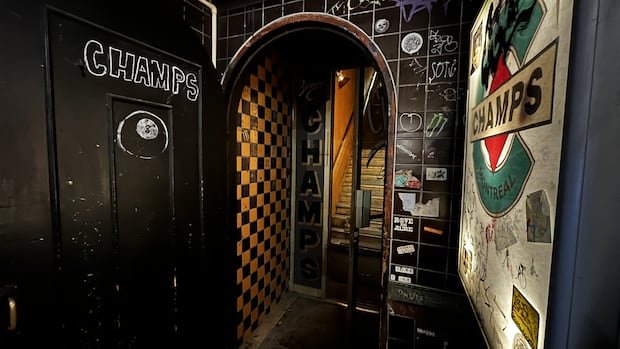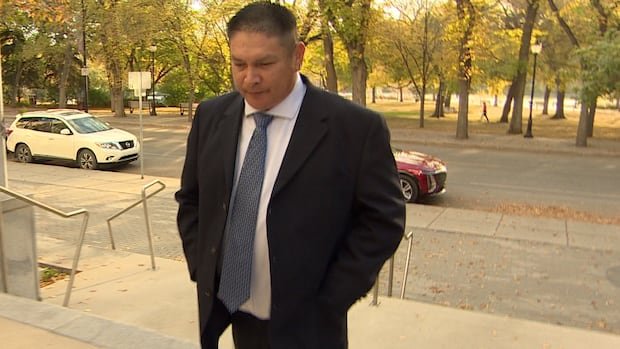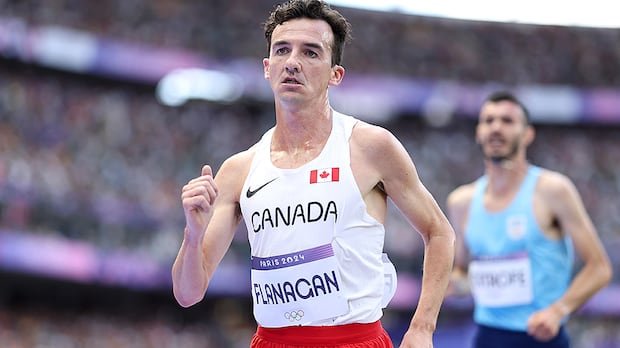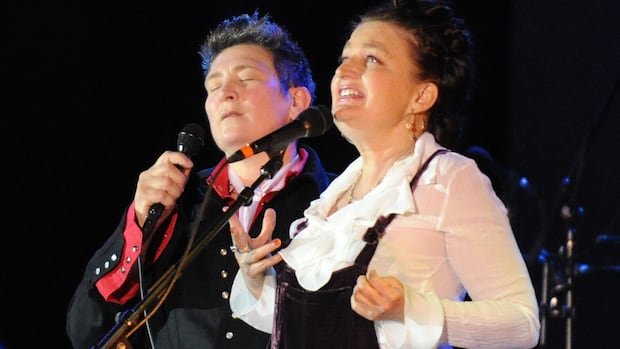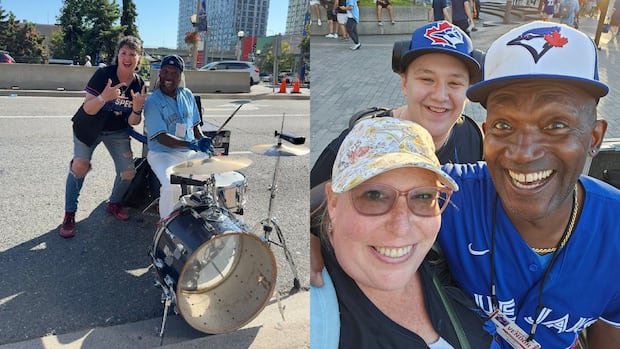On Montreal’s Saint-Laurent Boulevard, along a stretch where people and music spill into the streets, the renovated Champs Sports Bar has earned a reputation as a popular spot not only for watching sports, but also for karaoke, trivia and dancing nights, and as a welcoming space for lovers of the city. 2SLGBTQ+ community.
But as of 2022, the bar faced repeated noise complaints from its next-door neighbor, the owner of a 10-unit apartment that was a commercial property until the early 2010s.
the bar received numerous visits by the Montreal police and a city noise inspector, was chased in a civil court and subjected to a investigation conducted by the Quebec liquor board, the Régie des alcohols, des courses et des jeux.
Last year, Champs was forced to ban dancing after the Régie discovered that the bar did not have the proper permit. He was fined $3,000. It was ordered to close for five days and install soundproofing. Champs also made changes to its sound system and hired an acoustics expert to test its noise levels.
“It’s unnecessarily complicated,” said Pamela Bernstein, who works at Champs and helped the bar resolve complaints it faced.
“Everything takes forever and costs everyone a lot of money.”
In the end, Champs spent more than $30,000 in legal fees and another $14,000 just to install the soundproofing, according to Bernstein.
Champs got its official permit earlier this month and can finally host dance nights again. – but only on weekends.
While large festivals continue to be successful, some of the city’s smaller venues and bars have struggled or even closed, facing growing noise complaints and other challenges.
Expensive compliance
Several other bars and venues have also faced heavy fines (and, in some cases, even been forced to close) following noise complaints.
Documents obtained by CBC News through an access to information request show an increase in calls to the city’s 311 service.
Between the beginning of 2025 and the end of August, the city received 3,280 requests related to noise problems, with the highest totals in the Plateau and central Ville-Marie districts. This is on pace to surpass last year’s citywide total of 4,480 and the two years prior.
The data does not include interventions by Montreal police, who did not immediately provide those figures to CBC.
Bernstein suspects that the changing face of the neighborhood may have something to do with the increase.
In Champs’ case, Bernstein said, all of the complaints appear to come from a single individual.
Many bar and restaurant workers she knows have been excluded from the district, replaced by residents who don’t necessarily have nighttime hours and don’t share the same tolerance for noise.
La Tulipe, a century-old concert hall in Plateau, closed last year after a new neighbor took legal action over noise problems. In response, Montreal establish a fund fund soundproofing of performance venues, but bars like Champs are not eligible.
Under outgoing mayor Valérie Plante, the city also prepared a nightlife policy which aimed to address the concerns of bars and concert venues, while respecting residents who desire peace and quiet. Now, the noise debate has become a topic of debate in municipal elections.
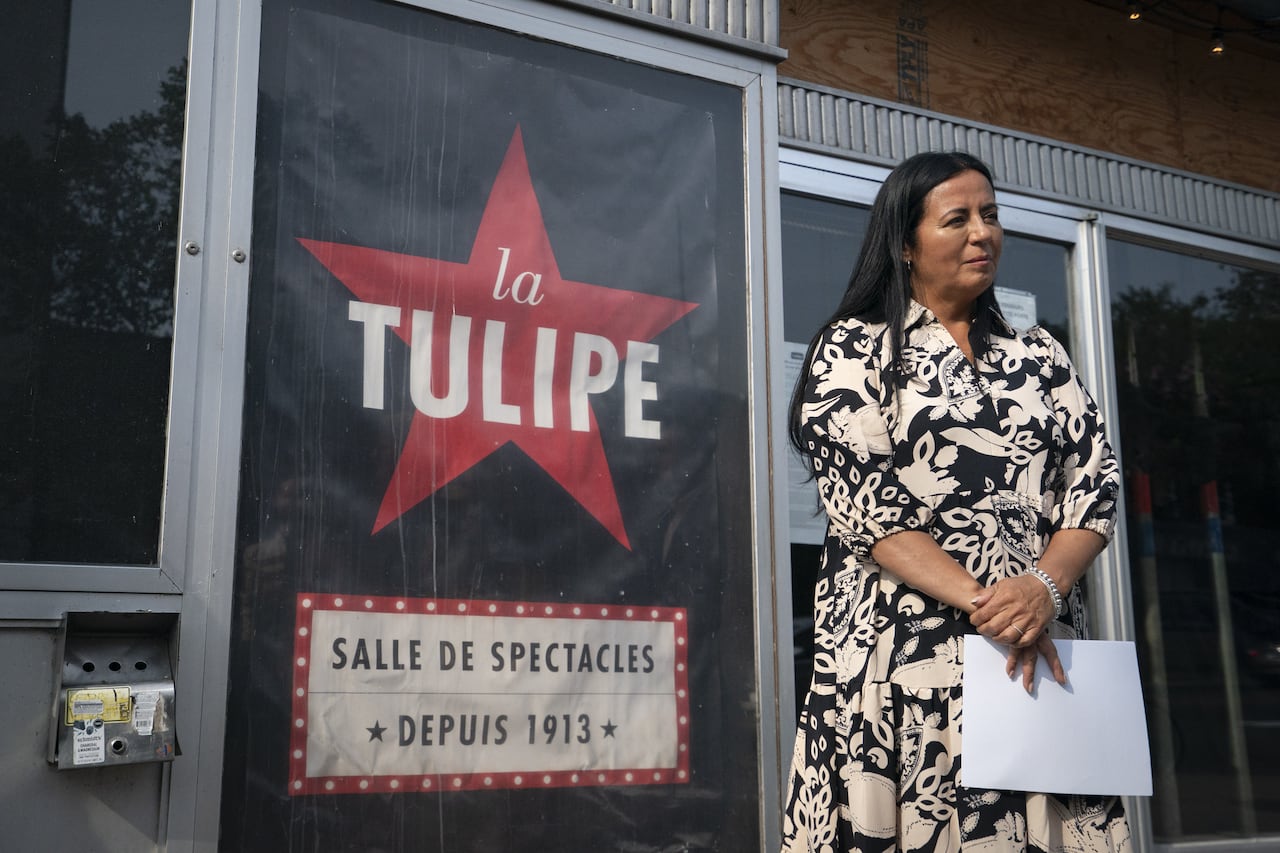
Sergio Da Silva, who spoke out after his bar Turbo Haüs was attacked noise complaintshelped bring the issue to the forefront. He is running for Transition Montreal, a new party led by councilor Craig Sauvé.
The party wants to appoint a night mayor and a night council to act as mediators in these types of disputes. It would also increase the soundproofing assistance program and limit police involvement to security and emergencies.
The party’s other leaders, including Projet Montréal’s Luc Rabouin and Ensemble Montréal’s Soraya Martinez Ferrada, have also said they would address the issue.
Rabouin said his party would adopt noise regulations consistent with the city’s nightlife policy, while Martínez Ferrada said he would direct noise complaints to a specialized administrative unit rather than sending them directly to the police, and would try to resolve them through mediation before imposing fines.
Part of the economy and culture
Jon Weisz, executive director of Les SMAQ, an association of small alternative music venues, said he’s glad to see attention being paid to the problem, because noise complaints threaten many small spaces.
“We need the city to understand that we are part of the economy, part of the culture and part of the vitality of Montreal, and that no one in the nightlife space is trying to bother their neighbors,” he said.
His group released a list of election priorities, including a clear decibel limit for venues, mediators to de-escalate the situation instead of sending in police, and reducing the dollar amount of fines.
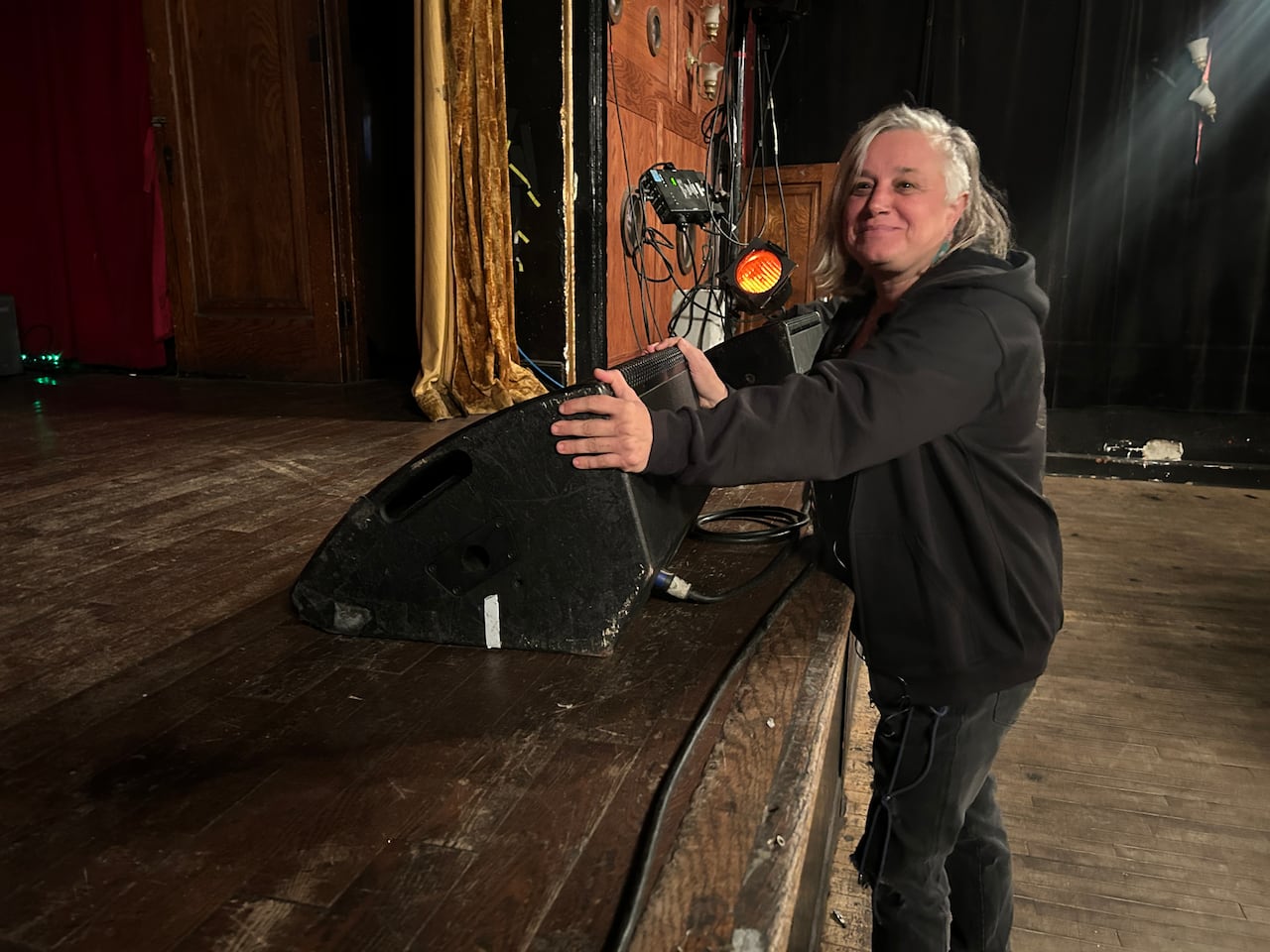
(Kwabena Oduro/CBC)
Under Plateau’s proposed new bylaw, venues could be fined $10,000 for a first violation.
“That would close one of our venues immediately to receive that kind of fine,” said Kiva Tanya Stimac, one of the founders of the Casa del Popolo venue and the Suoni Per Il Popolo Festival.
Stimac said it is necessary to preserve cultural spaces of all kinds, “where creativity can emerge.”
TO recent report found that Montreal nightlife generates 34,000 jobs and $2.3 billion in spending.
That same report recommended protecting nightlife venues from being subject to fines and threats from newly installed residential neighbors.
London, Melbourne and San Francisco have implemented laws ensuring that noise-causing sites are not subject to restrictions due to residential developments or zoning changes made after their implementation.
Will Straw, a professor of urban media studies at McGill University, said Montreal should follow the lead of other cities.
“We haven’t developed good policies to protect nightlife,” he said.
“Noise complaints are the single factor that has led to the increased number of nightlife closures and the general feeling that there is a Montreal-specific crisis.”
Champs’ Bernstein is in favor of such a change. If you’re going to live in an area known for its nightlife, there needs to be “a reasonable tolerance for sound,” he said.




